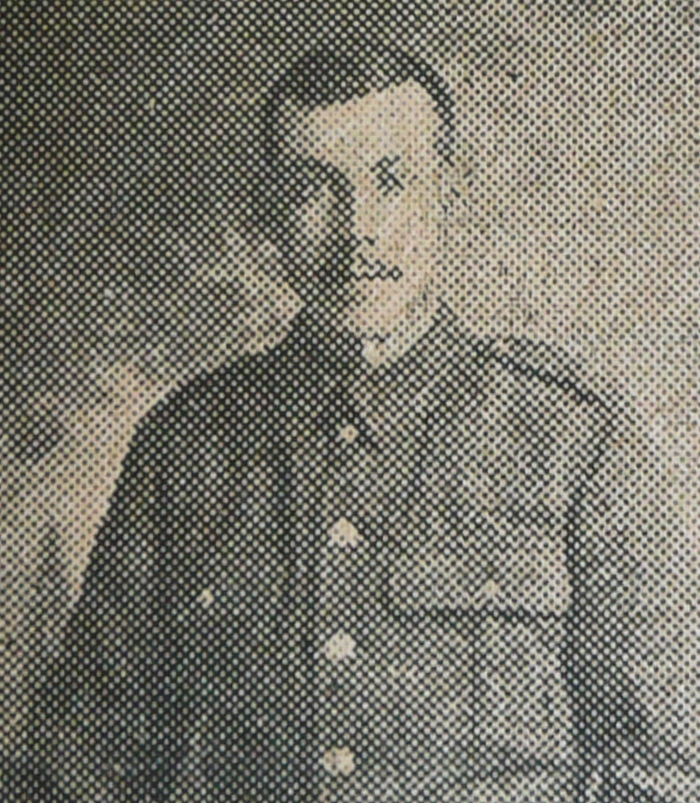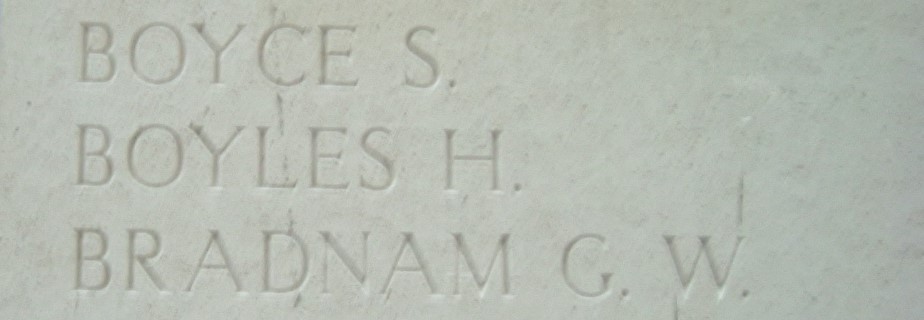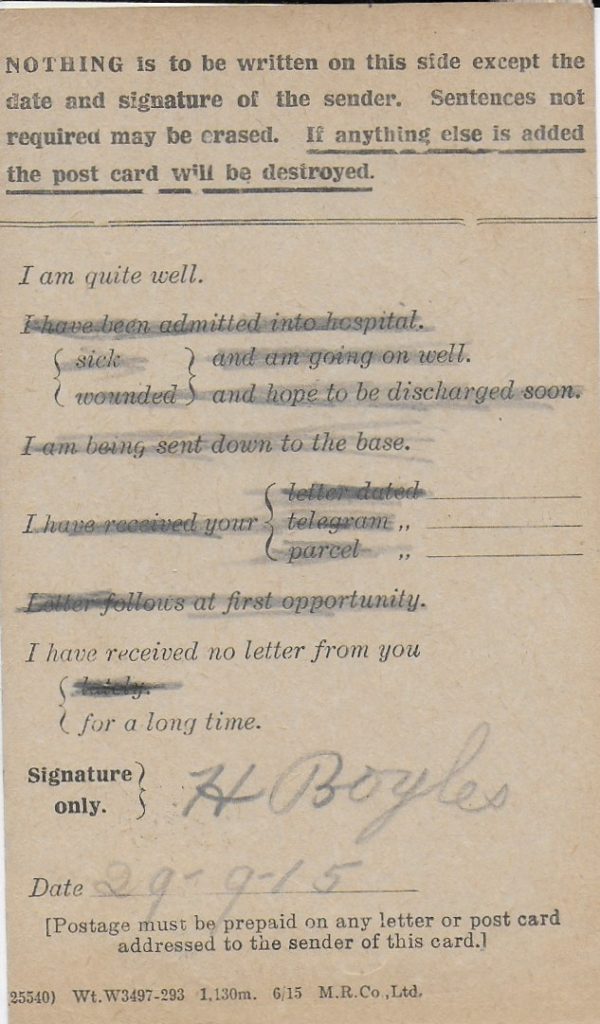3/10092 PRIVATE HENRY BOYLES
2ND BATTALION SUFFOLK REGIMENT
KILLED IN ACTION
2ND MARCH 1916
AGE 30 YEARS

At the time of the 1891 census, Henry’s branch of the Boyles family were living in the village of Rumburgh where he had been born in 1885, the second son of John, a bricklayer, and Anna (née Forman). By 1901 the family had moved to Chediston Street in Halesworth, on leaving school Henry had followed into his father’s trade, becoming an apprentice bricklayer employed by the local builder James Limmer and Sons. In 1908 he had married Rosa Bird of Westhall, with two young children born over the next two years. Sadly the second born, a little girl named Jessie, would die before her second birthday. On the outbreak of war in August, The Halesworth Times newspaper of the 15th September 1914 reported on a recruiting drive held in the Market Square calling for able-bodied men to join Lord Kitchener’s New Army.
Henry along with his elder brother David, also known as George, became two of the twenty-nine local men who volunteered from the town on that day, with the brothers receiving consecutive regimental numbers Henry becoming 3/10092 and George 3/10093. The prefix of the number 3 shows that they were initially posted to the 3rd (Reserve) Battalion, Suffolk Regiment who were then based at Felixstowe, where their training lasted a bare three months before they were both sent to France arriving on the 16th January 1915 to join the 1st Suffolks. This Regular Army Battalion had recently returned from the Middle East, where they had spent several of the previous years policing the Empire. After sailing for France, the 1st Suffolks landed at Le Havre on the 18th January 1915 as part of the 84th Brigade of the 28th Division.
On 2nd February the Battalion set out for their area of operations in the Ypres sector, for many of the soldiers part of the journey would have been a completely new experience, as they were transported by a convoy of thirty-eight London buses mobilized for war service. Over the following few months, they settled down to the life of a frontline Infantryman, with time spent both in and out of the trenches. At some time in April, Henry received wounds that would have been serious enough for him to be sent back to England. After being considered fit, he was once again returned to France at the end of 1915, this time being posted to his Regiment’s 2nd Battalion, where after a further two months of fairly static trench warfare, the 2nd Suffolks prepared for a major attack on the German positions in the area of Ypres – St Eloi. Early on the morning of the 2nd March 1916, the 2nd Suffolks left their trenches at 04.30. Hearing movement, the Germans sent up a shower of Very Lights, which turned night into day. This was then followed by a heavy barrage of artillery which was then countered by a barrage from the British gunners, in support of the attacking battalions. Within a short time, the Suffolks and their comrades of the 76th Brigade were in the German trenches with the last of the defenders ejected by 07.00. It was during the attack, followed by a day of intense bombardment by the German artillery, that Henry become one of the 2nd Suffolks fifty-six fatal casualties, accounted for on that day with a further one hundred and ninety wounded, some of whom would no doubt succumb to their wounds later.
Back in Chediston Street the loss of Henry must have been felt deeply, not only by his wife Rosa, but also by his Mother now a widow who would also lose her younger son Alfred a little over a year later. However, her first born son George, who had enlisted with Henry, went onto serve right throughout the war until finally being discharged to the Army Reserve on the 13th June 1919.
As with many of the war dead who met their end in that area of Belgium, Harry’s remains were never found with his name just one of the fifty-four thousand, six hundred and ten names remembered on the Menin Gate memorial to the missing.
After Henry’s death his wife Rosa would have received a small weekly pension of an unknown amount for herself and child, plus a War Gratuity of £7 15s. 3d (£7.76p).
Also, for his service in the Great War she could apply to receive his medal group of the 1915 Star Trio and Memorial Plaque and Scroll.
Their location is not known.

REMEMBERED WITH HONOUR YPRES (MENIN GATE) MEMORIAL


